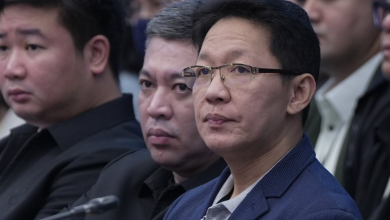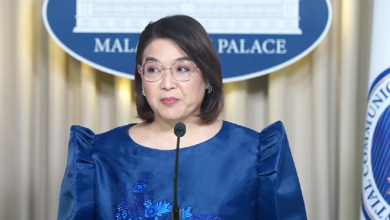Riddle-riddle, make a guess with your mind at play. The task is to respond, come what may!
“Sa kultura nananahan, Sulyap ng diwa at pagkakakilanlan, Sa mga salita at tradisyon kumikinang, Kaluluwa ng kultura, higit pa sa gintong yaman?”
[In every culture, my soul does reside, A reflection of their spirit, identity, and pride, In words and expressions, traditions unfold, I’m the soul of a culture, worth more than gold?]
The answer to this riddle resonates in a message from Pres. Ferdinand “Bongbong” Marcos Jr. on the occasion of National Language Month. Wika, which means “language” in Filipino, transcends mere communication. In the words of the President, it plays a pivotal role in propelling the Philippines towards unity and prosperity, encompassing a higher purpose beyond words alone.
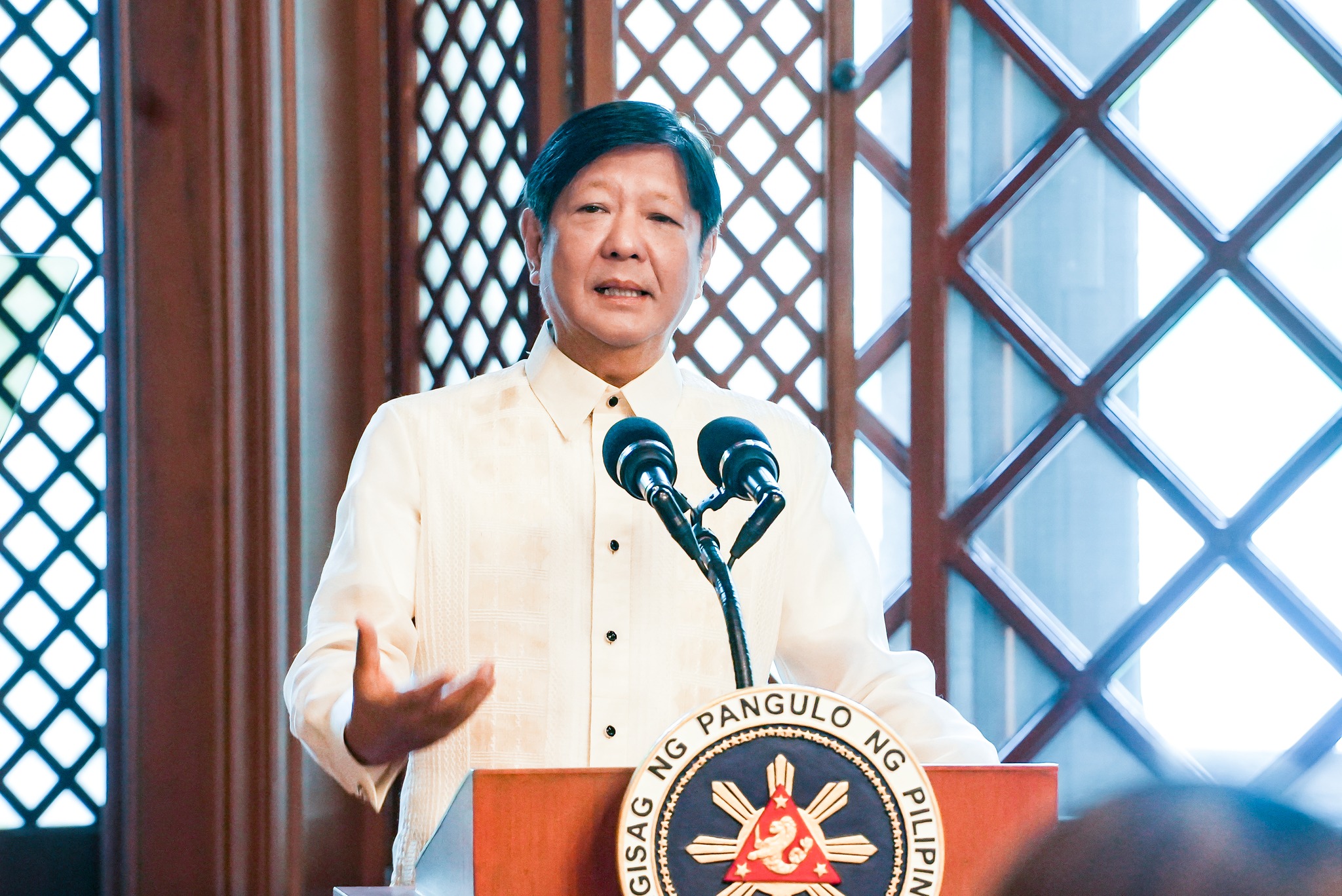
“Sa pagkakataong ito, ating bigyang-pansin ang kapangyarihan ng wika hindi lamang sa pagbuo ng ating kaisipan at paraan ng komunikasyon, kundi pati na rin sa pagkintal ng ating patuloy na pagsulong at pagdala ng kolektibong karunugan sa bawat henerasyon,” Pres. Marcos Jr. said.
[In this opportunity, let us give attention to the power of language, not only in shaping our thoughts and modes of communication but also in instilling our continuous progress and transmission of collective knowledge to every generation.]The President also urged all citizens to express their patriotism in their own unique ways, contributing to the advancement of our language and culture, thus shaping the identity of the Filipino people.
Through Proclamation 1041 signed in 1997, Buwan ng Wikang Pambansa is observed every August. It presents an opportunity to promote and honor the Filipino language and the nation’s diverse cultural heritage.
This year’s celebration centers around the theme “Filipino at mga Katutubong Wika: Wika ng Kapayapaan, Seguridad, at Ingklusibong Pagpapatupad ng Katarungang Panlipunan.”
(“Filipino and Indigenous Languages: Languages of Peace, Security, and Inclusive Implementation of Social Justice.”)
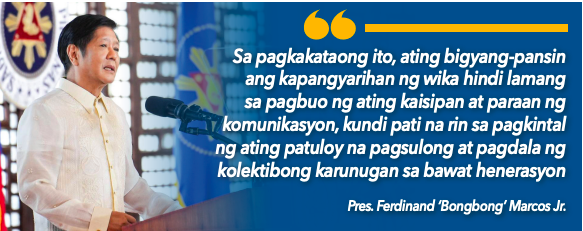
Learning the language beyond borders
Filipinos born and raised in the United Arab Emirates prove that learning the language beyond borders is possible.
Twenty-six-year-old Filipina-Egyptian Maha Esmat shared that despite being raised outside the Philippines, her mom, who was born and raised in the Islands of Bohol, passed on to her the skill of speaking and understanding not only Tagalog but also Bisaya.
“Growing up half Filipino, my father being Egyptian and my mother from the Philippines, I always tried to bridge the gap between my two halves. Having been born, raised, and lived my whole life in Dubai, where the expat population includes many Filipinos, learning and understanding the language benefited me in many ways; in making connections with people, better communicating with friends and family members, and forming relationships. It has also greatly benefited me in the workplace,” said Esmat.
She shared with The Filipino Times that her favorite word in Tagalog is “Maharlika”.
“The word having my name in it may or may not be the reason why it is my favorite… However, the meaning is so profound; it speaks of someone’s nobility or that you are a noble warrior, isn’t that cool? I think it is!” said Maha Esmat.
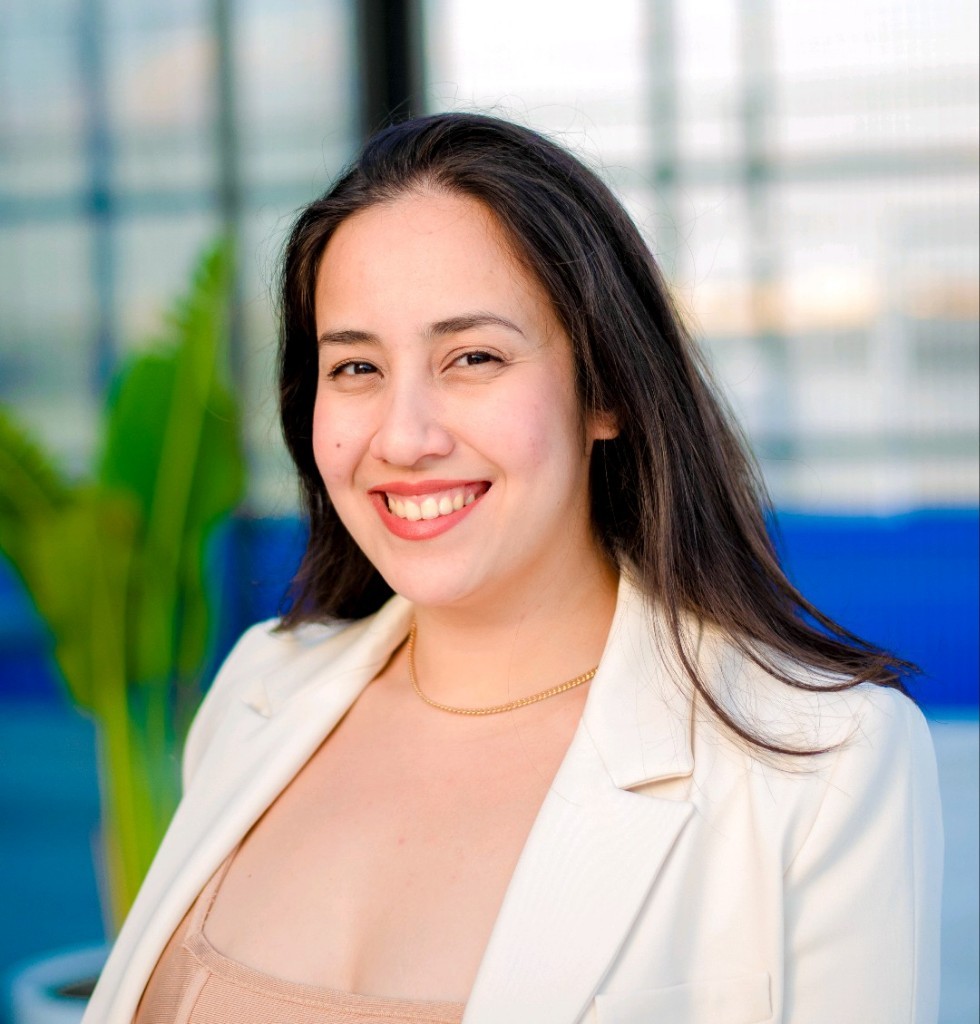
For 25-year-old Filipino-Emirati Bader Ahmad Alattar from Dubai, watching shows from Philippine-based TV networks helped him learn Tagalog. Meanwhile, he learned Bisaya from speakers like his mom and cousins who are from Davao.
“It is important to learn at least some basics of the local language when going to another country, but learning the language shows how much dedication and love you have for the country. It also shows how important diversity is,” said Alattar.
When asked what his favorite Filipino word is, Alattar answered “Kapamilya,” because at the root of it all, we are all family. It is said in such a joyful way, and nothing is more important than family for Filipino culture.”
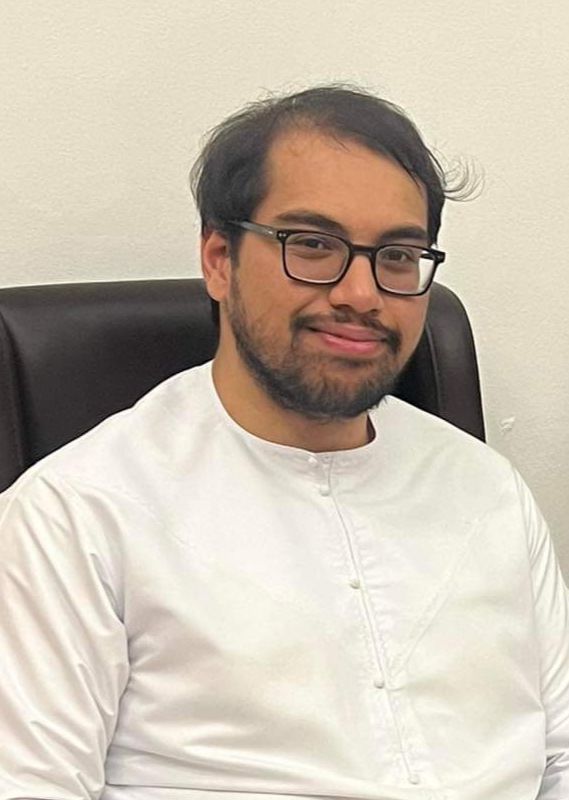
TFT asked our more than 455,000 online followers: Ano ang paborito mong salita sa wikang Filipino? (“What is your favorite Filipino word?”) Top answers included: sahod, pagmamahal, salapi, opo, and kaibigan.

Passing it on to the next generation
Overseas Filipinos based in the United Arab Emirates (UAE) couldn’t agree more that passing on the Filipino language to the next generations relies on our hands. With more than 1 million Filipinos in the UAE, many are facing the challenge of having to teach their children how to speak and understand Filipino while growing up outside of the Philippines.
For OFW parents like Jhessica Regaspi, she considers the Filipino language an integral way of giving her children a sense of connection to their country.
“As an OFW Filipino Mommy, it is important that they learn Tagalog, so they can understand me when I lecture them in Tagalog because my English is running out. Kidding aside, it’s a communication skill that they will carry on using for the rest of their lives to connect more easily to other Filipinos,” said Jhessica.
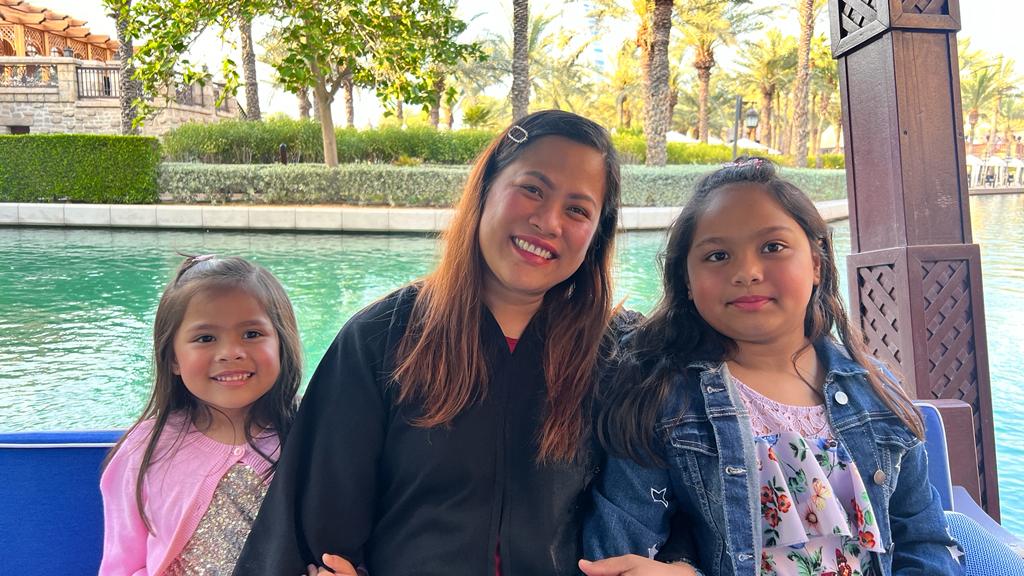
Make ‘Tagalog’ a part of your home
Dubai-based Filipina mom, Danielle Marie Pico shared with TFT that she believes that “it’s very important to inculcate in our kids the appreciation towards our roots and culture” and her most recommended way to teach the Filipino language is through exposure and immersion of our rich language in children’s everyday lives.
“You don’t really have to “teach” your kids to speak Tagalog. You just have to intentionally let them hear you use it again and again in the household. Speak to them, read to them, or even make them watch Tagalog shows appropriate for their age. Be creative in introducing the language. Make it fun and exciting and not like a chore they have to accomplish. They will surely absorb it. Especially the very young ones. I’d say it’s not very challenging to teach kids Tagalog if we, as parents, are intentional and consistent about it. Immerse them from a very young age. Make Tagalog a part of your home,” said Pico.
“It’s nice to raise mini-me’s with foreign accents while speaking English (or whatever other language they can speak) but it’s impressive to raise children who have utmost adoration and respect for their own culture and language,” she added.
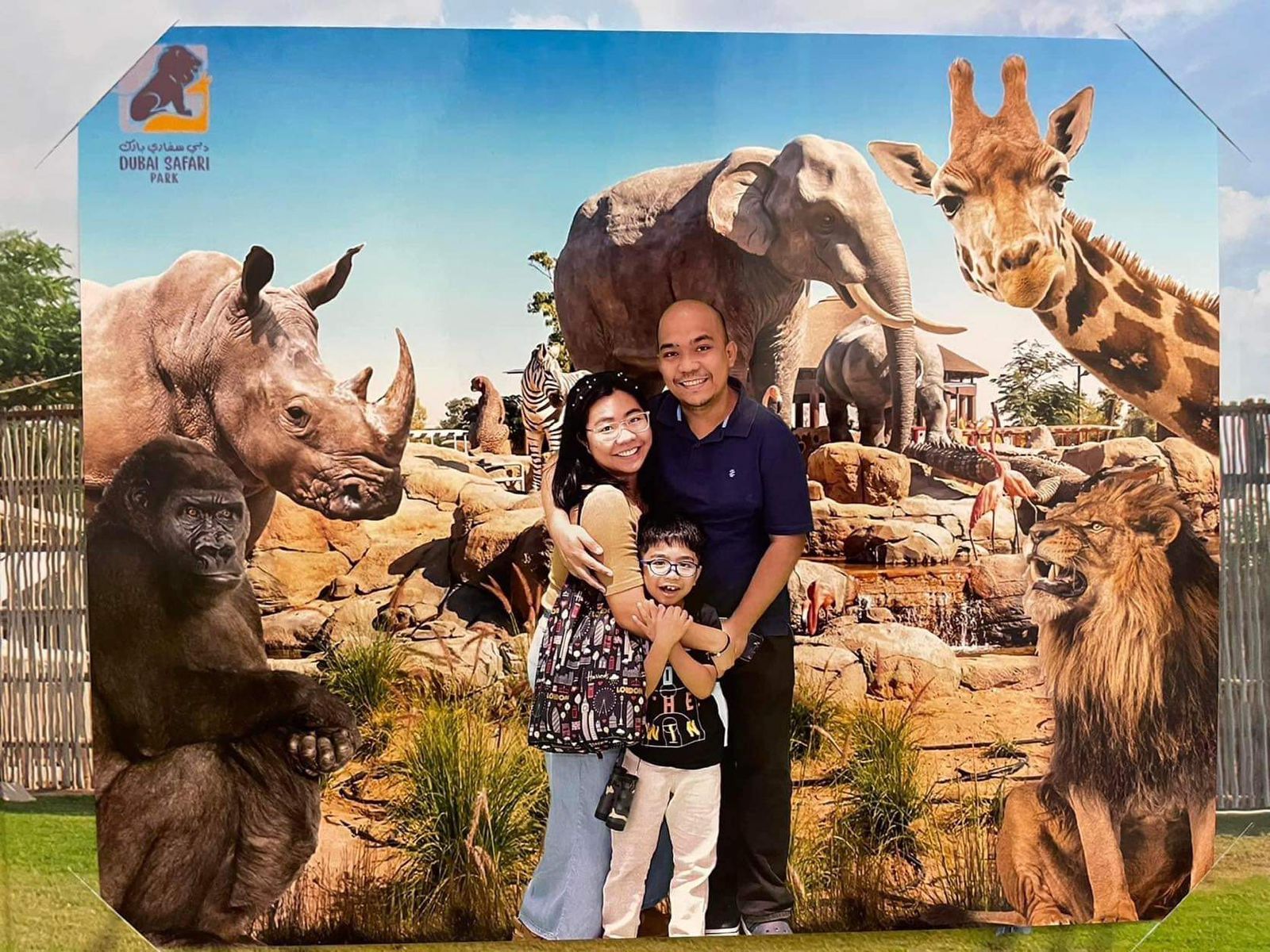
For Yvonne Virtudazo, raising Tagalog-speaking children allows them to be ‘certified Pinoy.’
“Language is the main symbol of culture. As a Pinoy Mom, it is important for me to instill Filipino Culture in my daughter through learning Tagalog. It will be very comforting on my part as a parent to know that even though we are based abroad, kapag umuwi kami, my daughter will be able to converse well in Tagalog or even Bisaya. She can exchange thoughts and opinions without the language barrier. This will give her the power and the confidence that she isn’t left out. And that she can proudly say, she certified Pinoy,” said Virtudazo.
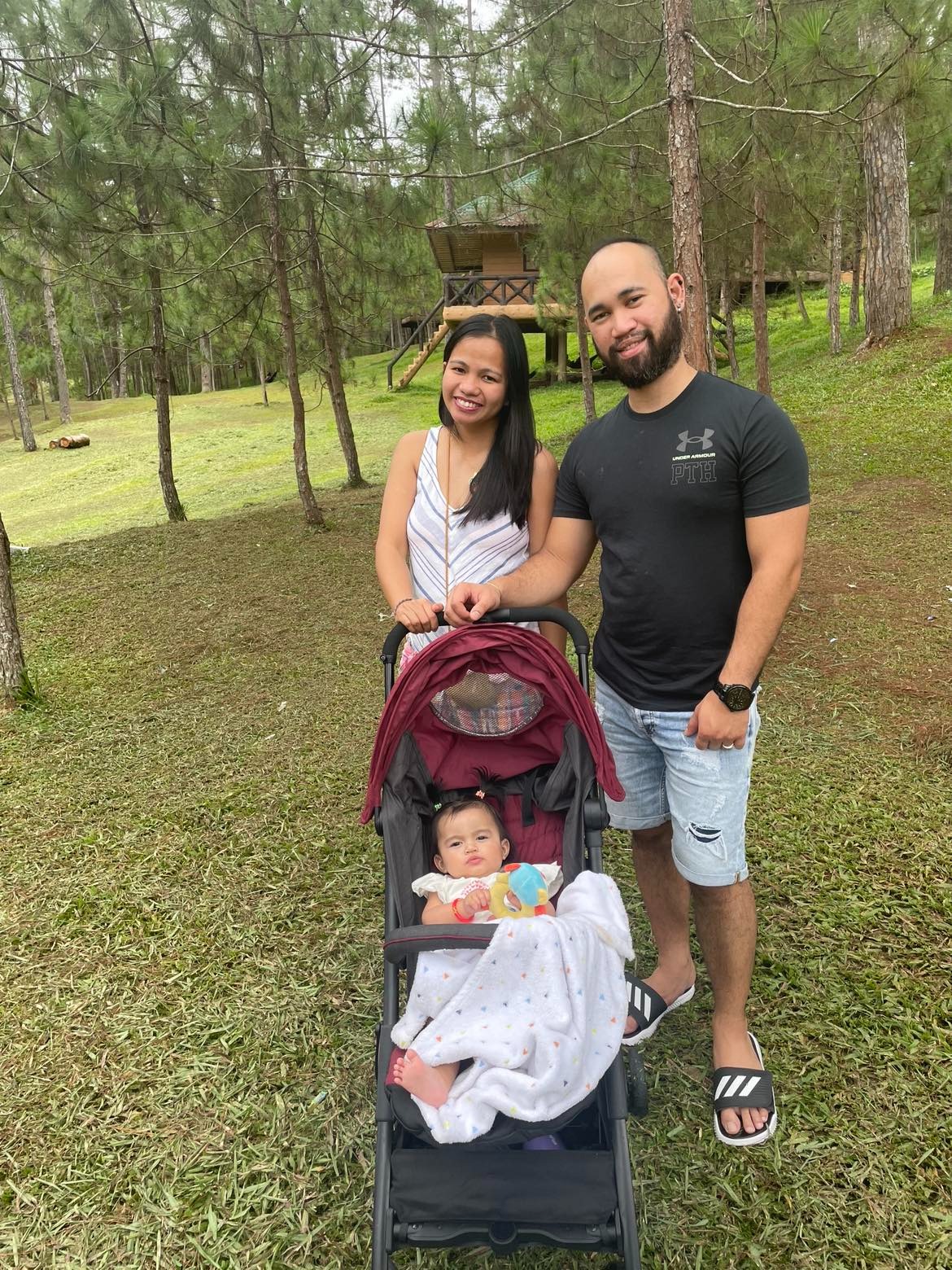
Filipino at mga Katutubong Wika
The Filipino language is a significant language in the Philippines, with about 25 million native speakers, making up 40% of the population, according to the Philippine Statistics Authority. It is used extensively in education, government, media, and the workplace.
Filipino is the primary language of instruction in public schools and is recognized as the official language by the government for official documents and transactions. The language’s influence is expanding, with increasing use on the internet and in the arts, promoting Filipino culture worldwide. As the Philippines becomes more connected globally, Filipino popularity is expected to grow.
Besides Filipino, the Philippines is home to more than 170 other languages, commonly referred to as dialects. The eight most important ones are Tagalog, Bikol, Cebuano, Hiligaynon, Ilocano, Kapampangan, Pangasinan, and Waray. These dialects share a common Austronesian base, allowing some level of mutual understanding among speakers.
Despite the decline in the use of indigenous languages due to the rise of Filipino, efforts, such as the K-12 program, aim to preserve these languages, as they are crucial in connecting with the country’s history and diverse cultures.




